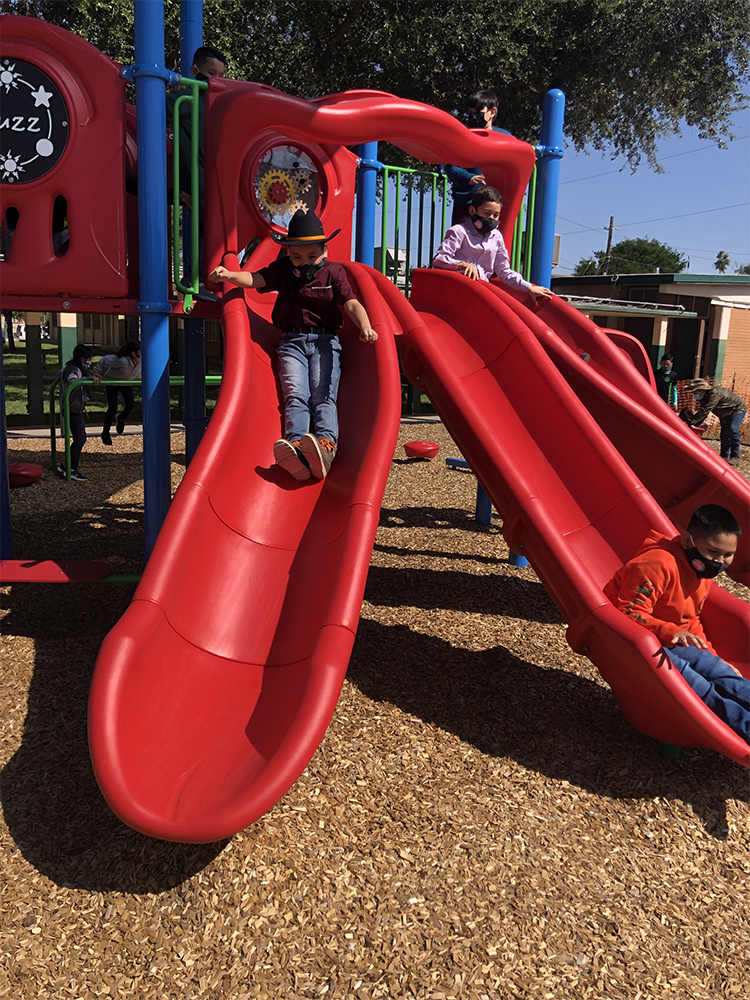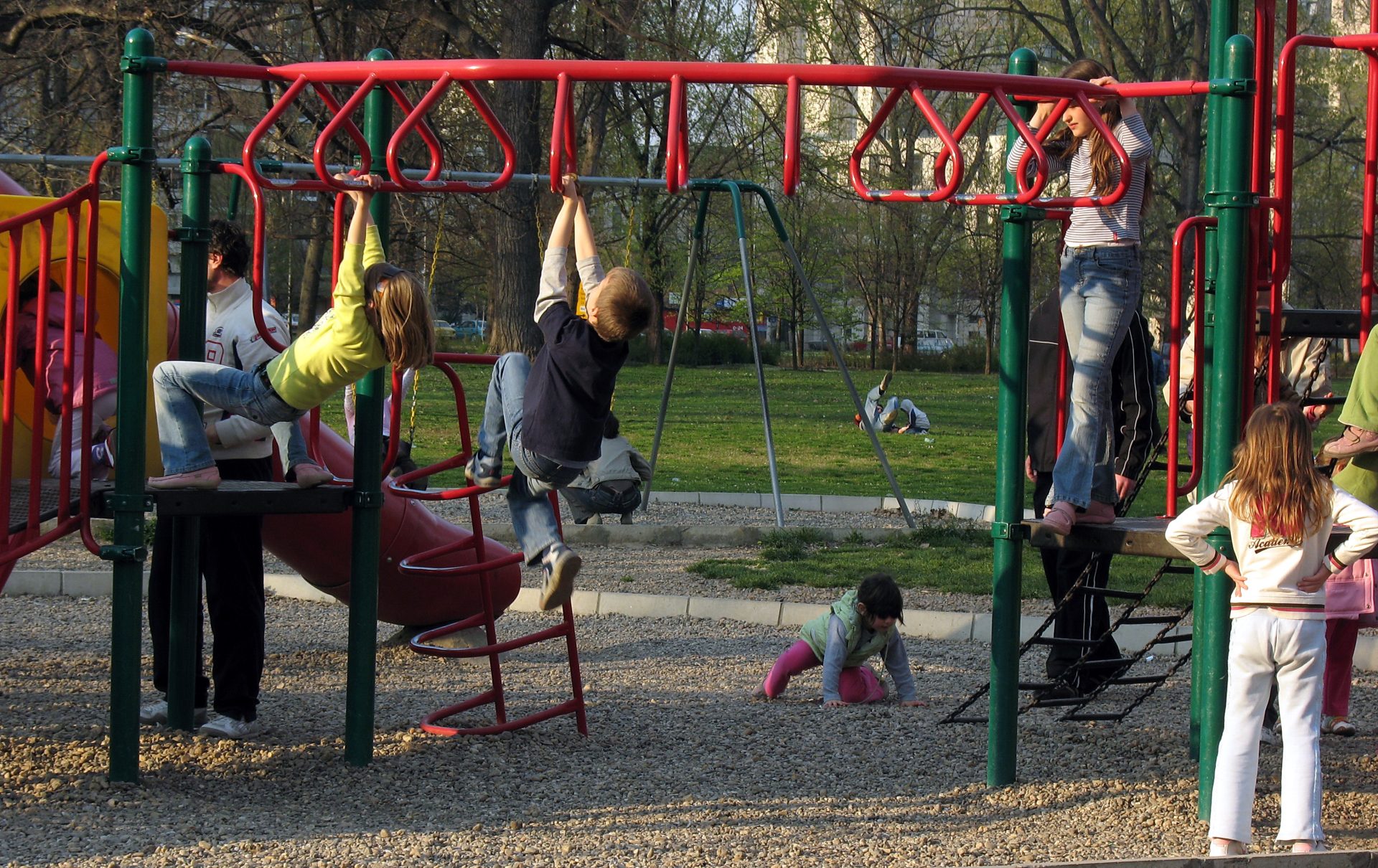|
Only have a minute? Listen instead
Getting your Trinity Audio player ready...
|
A lively cheer erupted from the back of the school boardroom when the motion passed, with parents and community supporters celebrating after several years of advocating for a written daily recess policy for all elementary level students in the Brownsville Independent School District. The new policy will not take effect until the 2024-25 school year and is humble in scope, with only 15 minutes of unstructured play required for students in the 3-year-old program through fifth grade. It is a step in the right direction and BISD is the second public school district in Cameron County (Harlingen CISD passed a similar policy last year) to guarantee children at least one unstructured play break during their 7 hour-plus school day.
The BISD policy comes on the heels of a 2023 recommendation by the district’s School Health Advisory Committee, a state-mandated committee made up of parents and community representatives commissioned to guide local school district decisions about health-related curricula and topics.
So, what is the big deal about recess? For starters, it is crucial to children’s development, mental and physical health, social and emotional learning and academic success, according to the American Academy of Pediatrics and other educational and health experts like Dr. Selma Yznaga, professor of counseling at UTRGV and former schoolteacher, counselor and alumna of BISD.
“Children learn through play. They need daily unstructured, preferably outdoor time that is supervised, but free of direction from adults. This is something that most places in other states and the world take for granted, but we have lost in some parts of Texas, particularly here in our local schools. Unstructured play promotes imagination and creativity, which can be lacking in a heavily prescribed curriculum.”
The benefits of recess are well documented in numerous scientific studies, and perhaps more importantly, the repercussions of no unstructured playtime and lack of exposure to the outdoors and nature are manifesting in a growing number of kids who are over-stressed, lack social skills and are overweight and unhealthy.
The arguments against requiring a daily break for children come from adults who likely are also feeling the stress and pressures of our educational system. School administrators and some school board members have argued that there is simply not enough time in the very structured school day schedule for a 15-minute recess break. The pressures on principals, teachers and school administrators are numerous, with more and more requirements for standardized testing results. However, even if the priority is real-time academic results, as opposed to whole child development, it is counterintuitive to remove unstructured play breaks from a child’s day, given the preponderance of evidence that doing so works against their academic success.

According to Yznaga, “Recess also benefits focus and has been shown to improve students’ ability to stay on task when they are back in the classroom. Attention deficit hyperactivity disorder and attention deficit disorder are medical conditions that affect how well someone can sit still, focus and pay attention to what is happening. For children with ADHD and ADD, the seemingly simple act of sitting in the classroom and paying attention to the teacher is tiring and challenging. It is somewhat unnatural to ask young children to do so for so many hours a day. A recess period offers playtime and a chance to release that excess energy.”
Adults are often allowed breaks to protect our health and wellbeing, and kids need them too. We all know that we do better when we can let off steam, especially by being physically active. The playground is also where kids learn social skills, like negotiating, compromising, how to be assertive and yes, how to develop problem-solving skills to prevent or address being bullied. Recess, especially when offered in longer blocks in an outdoor environment, is also where kids naturally develop creativity and imagination. Educators understand the value of these qualities, as they are directly tied to later success in the workplace and life.
I have core memories of recess all through elementary school, over an hour a day, often several times a day. That is where I learned about friendship, created imaginary worlds, ran until I was sweaty, learned to speak out for other kids, played on the monkey bars and joyously swung on the swings with the wind blowing through my pigtails.
Many adults in our community may complain that it’s too hot or too cold, that bugs or dirt or danger of injury outweigh the benefits of letting kids play outside. That is simply not the case, according to healthcare, mental health and child development experts. In fact, the American Academy of Pediatrics says the benefits of recess and the normal childhood injuries that happen as part of healthy outdoor play far outweigh the more severe and long-term detrimental effects of keeping kids inside and over-structured.
Yznaga continues: “Recess made me a better student. The continuation of games and relationship-building that occurred at recess motivated me to have near-perfect attendance. I wasn’t the fastest kid or very good at tetherball, but the spirit of competition carried over into the classroom, where I could out-spell my classmates. It was healthy, motivating and goal-oriented competition that made me strive to be better in all areas, including academic achievements.”

Kudos to the Brownsville and Harlingen school districts for leading the push for the whole child and requiring unstructured playground time every day for all children in their elementary schools. The pressures on school staff are many, and teachers too need that break time from instruction and structure. Many individuals and groups are responsible for getting this small but significant policy passed at the district level, including school board member champions, local pediatricians and counselors, the UTHealth Houston School of Public Health (Brownsville), the SHAC committee, the Collaborative Action Board, a regional health coalition, the teacher organization Brownsville Educators Stand Together, and parents who instinctively understand that children have the right and need to play! Tu Salud ¡Si Cuenta! (Your Health Matters!).
Lisa Mitchell-Bennett is project manager at the UT Health Science Center at Houston School of Public Health in Brownsville.





